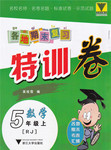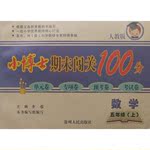
When my brother and I were young, my mom would take us on Transportation Days.
It goes like this: You can't take any means of transportation more than once. We would start from home, walking two blocks to the rail station. We'd take the train into the city center, then a bus, switching to the train, then maybe a taxi. We always considered taking a horse carriage in the historic district, but we didn't like the way the horses were treated, so we never did. At the end of the day, we took the subway to our closest station, where Mom's friend was waiting to give us a ride home—our first car ride of the day.
The good thing about Transportation Days is not only that Mom taught us how to get around. She was born to be multimodal (多方式的). She understood that depending on cars only was a failure of imagination and, above all, a failure of confidence—the product of a childhood not spent exploring subway tunnels.
Once you learn the route map and step with certainty over the gap between the train and the platform, nothing is frightening anymore. New cities are just lightrail lines to be explored. And your personal car, if you have one, becomes just one more tool in the toolbox—and often an inadequate one, limiting both your mobility and your wallet.
On Transportation Days, we might stop for lunch on Chestrut Street or buy a new book or toy, but the transportation was the point. First, it was exciting enough to watch the world speed by from the train window. As I got older, my mom helped me unlock the mysteries that would otherwise have paralyzed my first attempts to do it myself: How do I know where to get off? How do I know how much it costs? How do I know when I need tickets, and where to get them? What track, what line, which direction, where's the stop, and will I get wet when we go under the river?
I'm writing this right now on an airplane, a means we didn't try on our Transportation Days and, we now know, the dirtiest and most polluting of them all. My flight routed me through Philadelphia. My multimodal mom met me for dinner in the airport. She took a train to meet me.
1. According to the writer, what was the greatest benefit of her Transportation Days?
A.Building confidence in herself.
B.Reducing her use of private cars.
C.Developing her sense of direction.
D.Giving her knowledge about vehicles.
2. The underlined word “paralyzed”(in Para.5) is closest in meaning to “________”.
A.displayed B.justified C.ignored D.ruined
3. Which means of transportation does the writer probably disapprove of?
A.Airplane. B.Subway. C.Train. D.Car.
1.A
2.D
3.A
【解析】
试题分析:本文介绍了作者对于人的价值观的看法,人生的价值体现在给与我们有关的、我们所爱的人留下最美好,最珍贵的回忆。
1. 推理题:根据文章的第三段和第四段中的句子a failure of confidence—the product of a childhood not spent exploring subway tunnels和…, nothing is frightening anymore. 从而得出结论--- Building confidence in herself。选A
2.词义猜测题:通过对上下文的理解,可知这里需要解释为ruined。选D。
3.推理题:根据最后一段的句子:the dirtiest and most polluting of them all,可知作者对于飞机是这种交通工具并不喜欢。选A。
考点:考查故事类短文阅读


 各地期末复习特训卷系列答案
各地期末复习特训卷系列答案 小博士期末闯关100分系列答案
小博士期末闯关100分系列答案科目:高中英语 来源: 题型:阅读理解
Looking back on my childhood, I am convinced that naturalists are born and not made. Although we were all brought up in the same way,my br others and sisters soon abandoned their pressed flowers and insects. Unlike them,I had no ear for music and languages. I was not an early reader and I could not do mental arithmetic.
Before World War I we spent our summer holidays in Hungary. I have only the dim memory of the house we lived in, of my room and my toys. Nor do I recall clearly the large family of grandparents,aunts, uncles and cousins who gathered next door. But I do have a clear memory of the dogs, the farm animals, the local birds, and above all, the insects.
I am a naturalist, not a scientist. I have a strong love of the natural world and my enthusiasm had led me into varied investigations. I love discussing my favorite topics and enjoy burning the midnight oil reading about other people's observations and discoveries. Then something happens that brings these observations together in my conscious mind. Suddenly you fancy you see the answer to the riddle, because it all seems to fit together. This has resulted in my publishing 300 papers and books, which some might honor with the title of scientific research.
But curiosity,a keen eye,a good memory and enjoyment of the animal and plant world do not make a scientist: one of the outstanding and essential qualities required is self?discipline, a quality I lack. A scientist, up to a certain point,can be made. A naturalist is born. If you can combine the two,you get the best of both worlds.
1.The first paragraph tells us the author .
A.was interested in flowers and insects in his childhood
B.lost his hearing when he was a child
C.didn’t like his brothers and sisters
D.was born to a naturalist’s family
2.The author can’t remember his relatives clearly because .
A.he didn’t live very long with them
B.the family was extremely large
C.he was too young when he lived with them
D.he was fully occupied with observing nature
3.It can be inferred from the passage that the author was .
A.a scientist as well as a naturalist
B.a naturalist but not a scientist
C.no more than a born naturalist
D.first of all a scientist
4.The author says that he is a naturalist rather than a scientist probably because he thinks he .
A.has a great deal of trouble doing mental arithmetic
B.lacks some of the qualities required of a scientist
C.just reads about other people’s observations and discoveries
D.comes up with solutions in a most natural way
查看答案和解析>>
湖北省互联网违法和不良信息举报平台 | 网上有害信息举报专区 | 电信诈骗举报专区 | 涉历史虚无主义有害信息举报专区 | 涉企侵权举报专区
违法和不良信息举报电话:027-86699610 举报邮箱:58377363@163.com